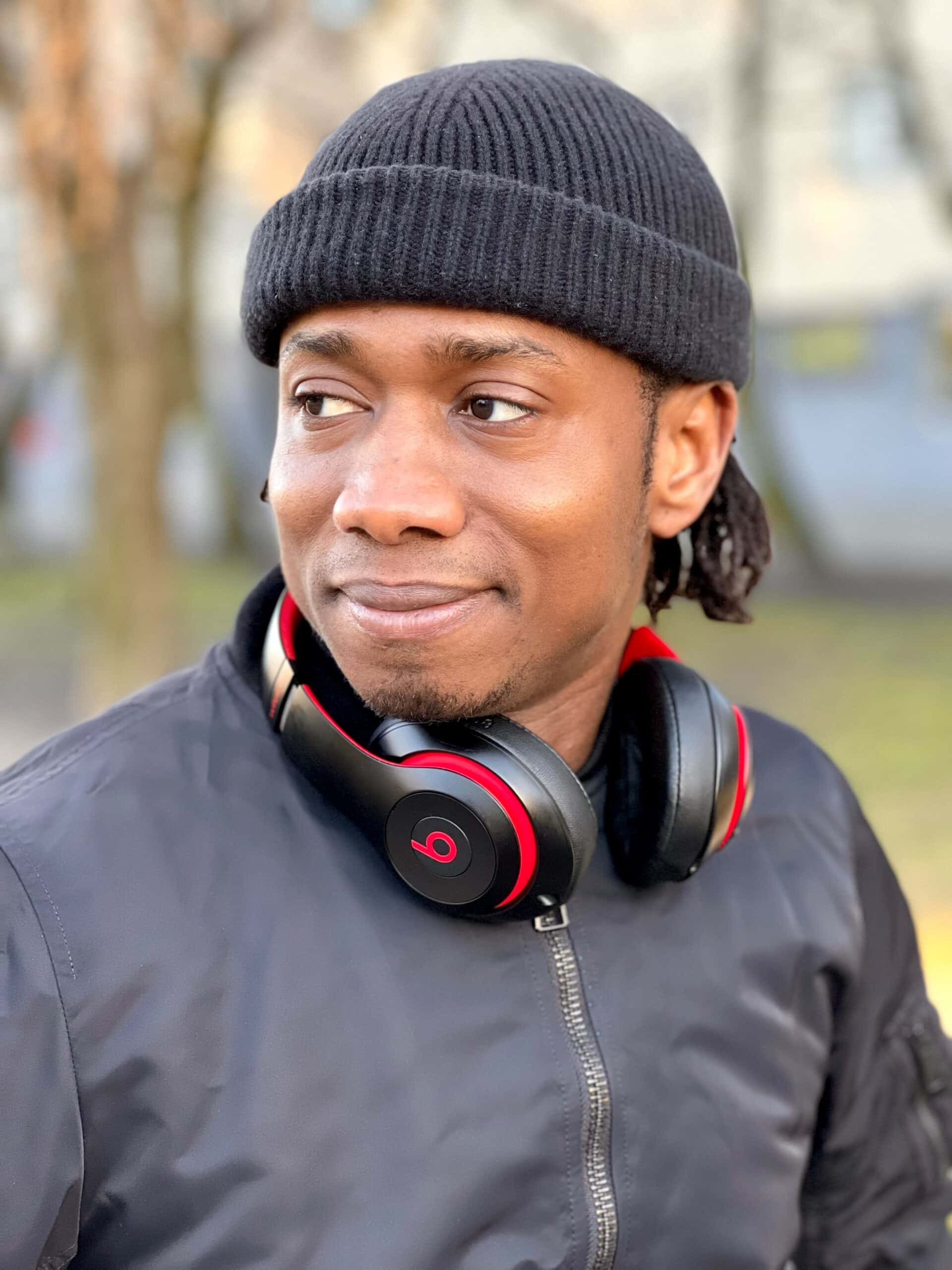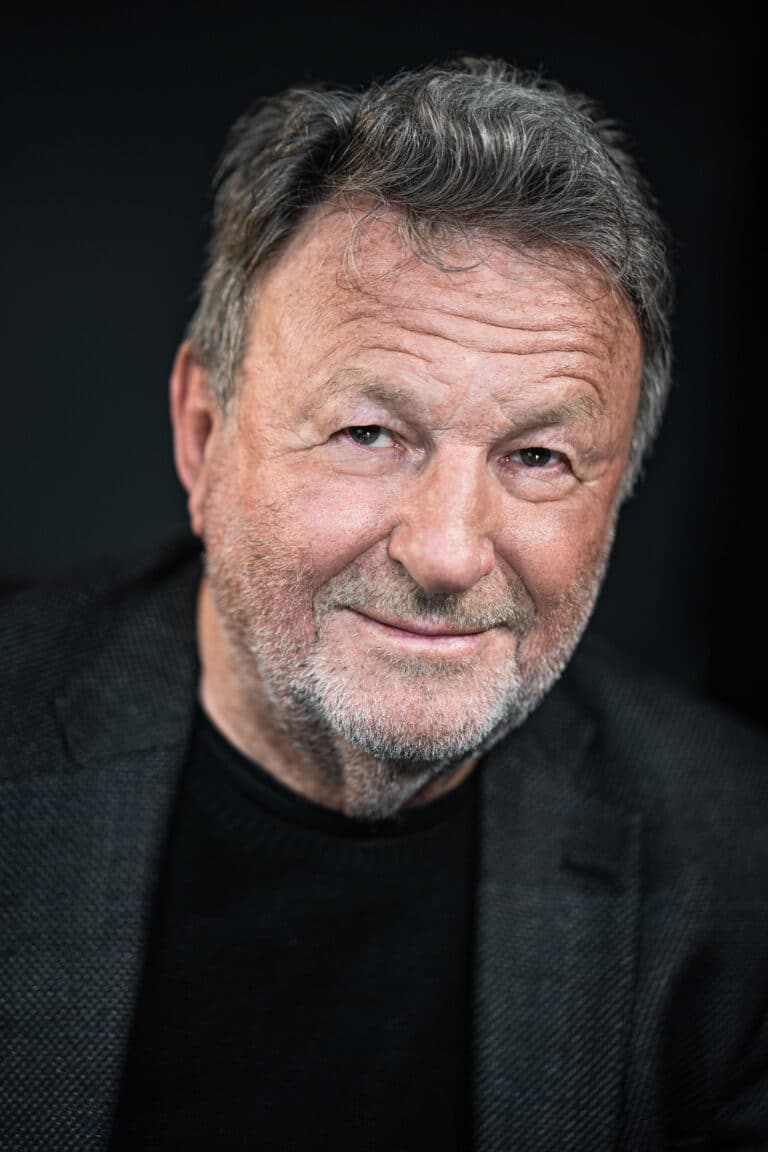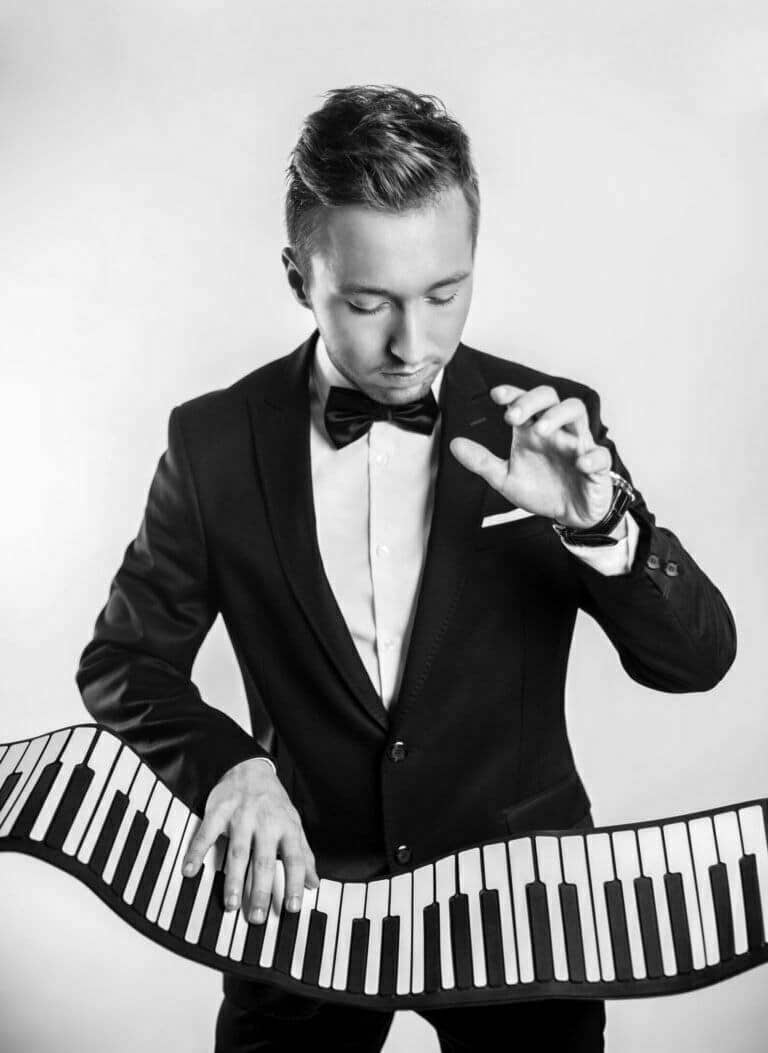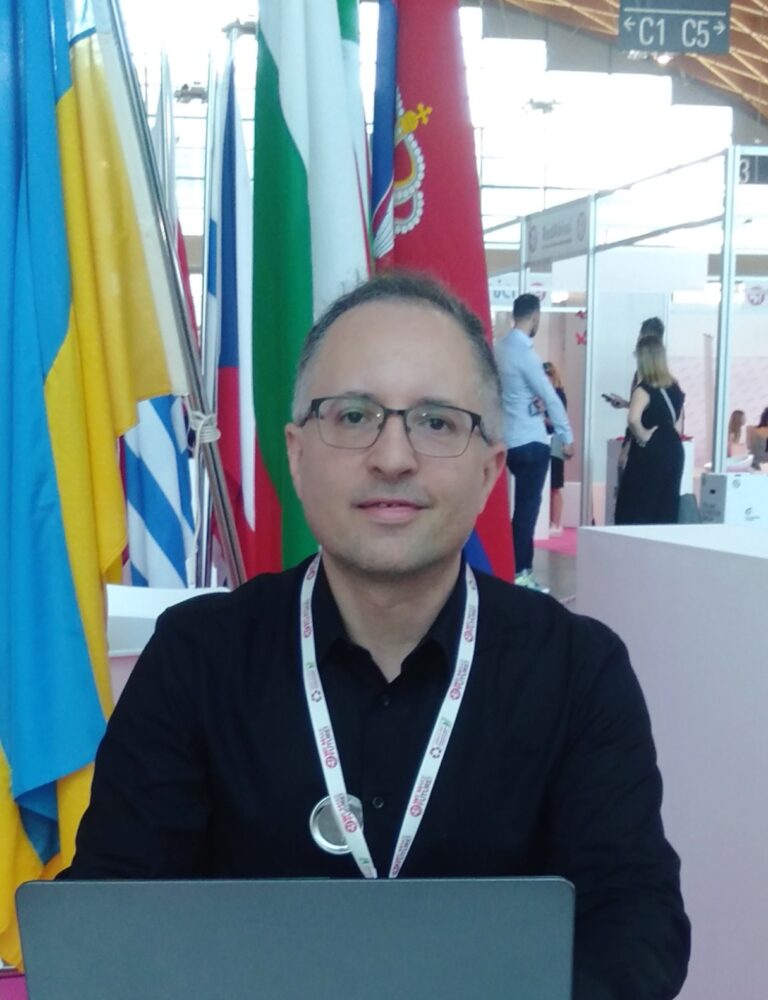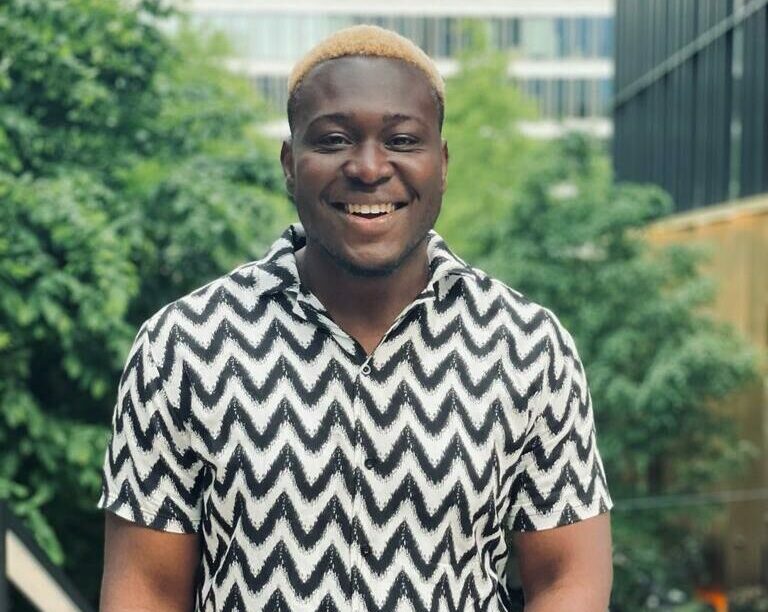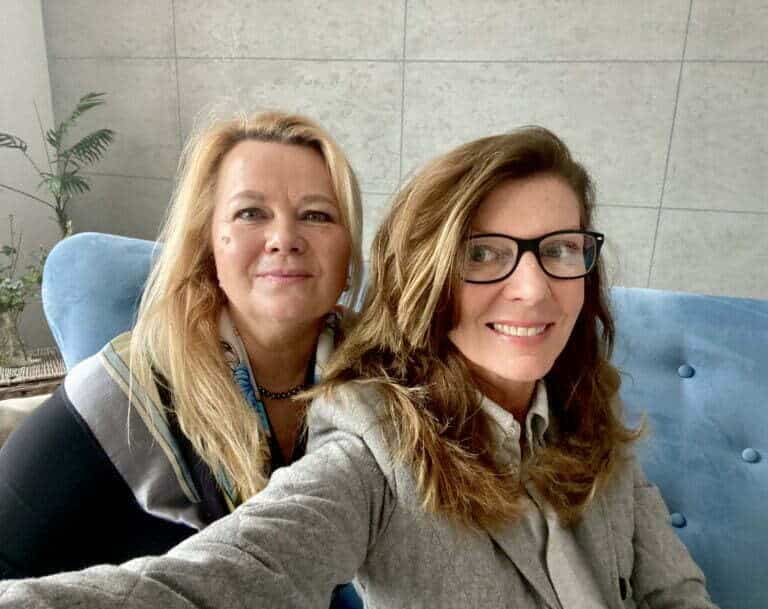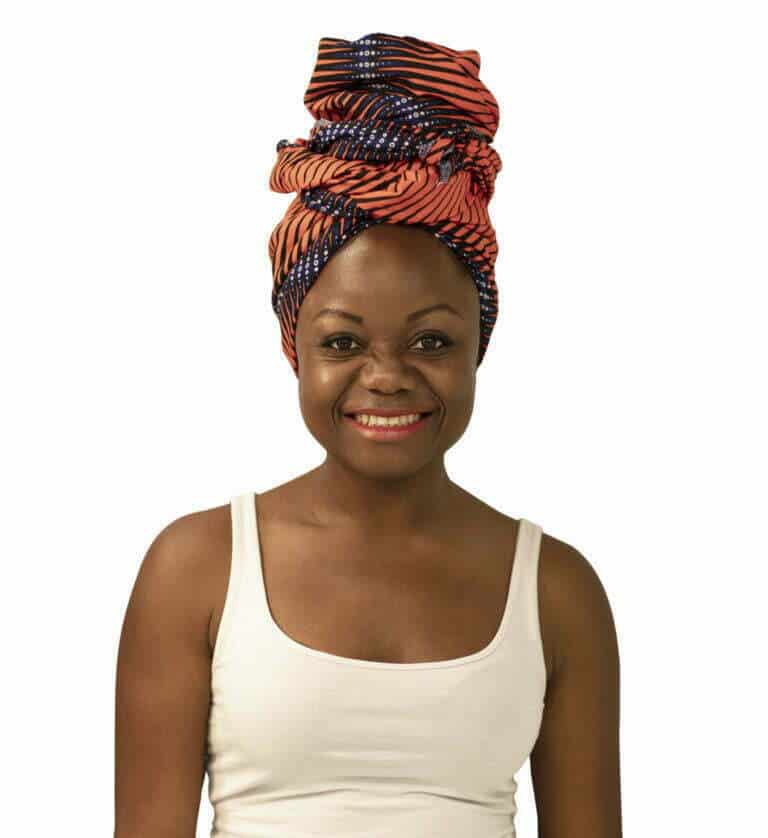From West Africa to Eastern Europe
Braima is a 38-year-old kite-surfing assistant instructor from Guinea Bissau who has spent most of his life in sunny and windy Cape Verde. He came to Warsaw three years ago, making a change he hadn’t expected.
Why did you decide to come to Poland?
I’ve never actually planned to live in any European country before. Of course I wanted to travel but my lifestyle suited me and I wasn’t looking for a new home. It kind of found me instead. My wife is Polish and we were living together in Cape Verde. We decided to come here when we started our family. And I am very happy with this decision.
What did you know about our country before your personal connection to Poland? Have you met a lot of Polish people in Africa?
My dad is all about international news, always listening to the radio RDP Africa or BBC. He likes to stay informed about what is happening around the world. I remember him telling me about Polish history, which in some ways is similar to what Guinean people have experienced. I also met some Polish kite surfers in Cape Verde. Locals have always liked them and I distinctly remember why. Contrary to some other tourists, Poles were very honest, didn’t try to avoid paying and were reliable, for example, with the sporting equipment.
What was your first impression of Warsaw?
I was surprised how vast it was. Everywhere you went there was space connected with some kind of magnitude – of the buildings, streets, bridges, traffic. It was overwhelming at first but also fascinating. But I guess that is expected from the non-city person that I was before.
Has your perception of the city changed during your time here and how?
Definitely. Not only because you simply get to know the place and its ways but most importantly because you meet people. That’s what makes all the difference. My experience here is filled with kindness, openness and support not only from family members, but also the people I’ve come across. As for the obviously faster paste of life – I managed to get used to it quite quickly.
Do you like living here? What would you say is special about this city?
I like Warsaw very much. In spring and summertime it’s very green, almost as green as Guinea Bissau and that really makes me feel like home. There are multiple and absolutely beautiful parks, like the majestic Royal Łazienki or the small and very charming Ujazdowski Park with little bridges and romantic benches. Warsaw is also very clean and spacious – you rarely see trash on the streets. And any foodie person simply has to like Warsaw for its diverse restaurants. You can enjoy almost any kind of cuisine here. Unfortunately not so much African, so if I’m craving for familiar tastes I have to prepare them myself but without some ingredients it’s just not the same.
What do you think about Polish food?
I love it! Most national dishes are based on meat, which is perfect for me. The famous dumplings are not my thing, but there is something everyone visiting Poland should try and that is Polish sour soup – żurek. That is my personal favorite, absolutely delicious! I’m very lucky because my mother-in-law is an excellent cook and I get to try a lot of traditional home-made meals. There is something I really miss though – African spicy flavor that is really hard to recreate here.
What else do you miss the most?
Family. I grew up in the little town of Bissora with my two brothers and five sisters. Some of them live now in Guinea Bissau’s capital, Bissau, and some – like me before – in nearby Cape Verde. My mom and dad still live in our family home in Bissora and that place I carry in my mind and heart every day. We stay close and in constant touch but I miss their good humor in everyday situations. I remember mango fruits from our garden and my mom’s African chicken dishes. I miss fresh cashew nuts so much! Guinea Bissau is one of their top producers. They grow there just like apples in Poland. And finally – the smell of wet soil in the rainy season – I miss that very much.
You said the people you have met have played an important role in your adjustment to the new environment. How would you describe Poles? Are there any national traits especially appealing to you?
Polish people work very hard for everything they have. This amazing work ethic is really something to be admired. They speak foreign languages and basic knowledge of English is almost a standard in Warsaw, so it’s quite easy to navigate the city even if you’re not from here. I often hear that someone is taking a new course or training and this drive for education and constant improvement keeps me motivated. Coming to Poland was a fresh start for me and that of course has its pros and cons. One of the hardest is the position on the job market you find yourself in.
How did it work out for you? What do you do now?
I had found myself in a different world and naturally I fell behind. After receiving my residence card I was working part time as an office runner trying to find a place for myself in the new reality. Then the pandemic broke out and the world I had got to know completely changed. Eventually I managed to find steady employment in catering, which now allows me to plan the future and work on new professional skills. It takes a lot of patience and perseverance – something I’m also learning along the way.
What was the biggest challenge you have faced?
Language. Polish is so difficult! I started learning soon after I came here and I’m slowly making progress. It remains a challenge for me but I’m not giving up. Thankfully at least the pronunciation isn’t as big of a problem for me as for those of other nationalities. My mother tongue is Portuguese and that works to my advantage.
You mentioned the African rain season. How do you feel about Polish weather, especially wintertime?
Oh, I love winter! Freezing weather makes me feel healthy and toughens up my immune system. I first came to Warsaw in February and was welcomed by the snow which I saw for the first time in my life. I fell in love with this feeling of cold, for me it was very exotic. And at the beginning I didn’t even want to wear warm clothes. In time the cold got to me and this year I couldn’t really get out without my puffer jacket anymore. My wife is joking that I’m becoming local and that all I need to become fully Polish now is some autumn depression. Poles take the weather very seriously and complain about it a lot. And not just about the cold. Summers get very hot, which is another thing they don’t seem to like. For me Polish weather and temperature changes are still fantastic. What’s difficult is the lack of sunlight in the winter.
Complaining about the weather really is our national trait. What about Guineans? What do they all have in common and do you find any similarities between them and Poles?
This is funny. Now when I think about it they are very much alike especially when it comes to the weather. Only that in Guinea Bissau we have fewer reasons to be disappointed because there’s only one change – the rainy season in August. Everyone is so unhappy then! The constant humidity causes so much stress that when it finishes there’s an actual celebration. Not for long though because of course soon everyone starts to miss the rain. When it comes to other things – absolutely. Both Guineans and Poles are very social, welcoming and they always receive you with food. And – even though the styles are completely different – both take care of how they look and dress very well.
Is there anything you don’t like here?
Not much. But there are two things that are hard for me to get used to. First – the impatient drivers, always in a hurry, not paying attention. That happens a lot in Warsaw and causes unnecessary danger. And second – something that can be really annoying at times – people on the streets that do not respect your personal space. They either approach or stand much too close, or walk just behind you and the minute you slow down for example to get the phone, they bump right into your back.
Do you ever think of going back?
Just to visit, yes. But mine and my family’s future is here – Poland is my second home.

